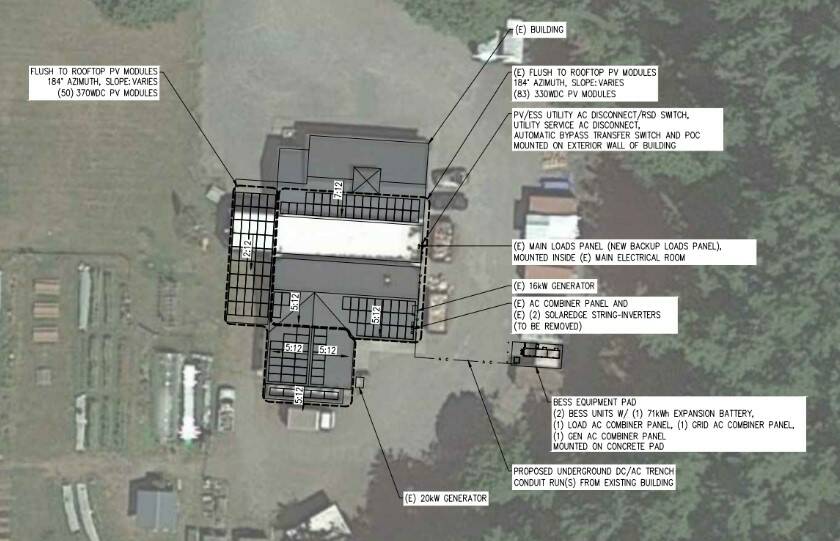With the use of solar power grants, two South Whidbey nonprofit organizations hope to provide a place for community members to gather during an emergency or natural disaster.
Last month, the state Department of Commerce awarded $37 million to 46 clean energy projects across Washington, including two on Whidbey Island.
Goosefoot Community Fund received $66,400 for a feasibility study of a solar plus storage project at Bayview Center, where the Goose Grocer is located. The plan, Executive Director Elise Miller explained, is to offset utility costs at the electricity-heavy grocery store while also providing a community resiliency hub to citizens during a power outage.
Miller said Goosefoot plans to install level three charging stations for electric vehicles, which take about 30-60 minutes to charge a battery.
“We’re envisioning the Bayview Center as being greener, and those options include having the fast charging stations and the solar,” she said.
She emphasized that both the charging stations and the installation of the solar plus storage project will require additional funding not covered by this grant, which only covers the feasibility study. The hope is that the solar project will be up and running in late 2025 or early 2026.
Good Cheer received $210,000 to enhance its food bank building with a battery energy storage system similar to Goosefoot’s plan. In addition to providing a haven for people during an emergency who may be looking for a place to charge their phones and warm up, the new system would minimize food spoilage and decrease fossil fuel and generator emissions.
Currently, the food bank relies on two propane-fueled generators to keep food cool during a power outage. Shade from solar panels during the summertime would provide even more efficiency for the freezers and refrigerators.
“Climate change has been exceeding the ratings for our condenser unit capacity, so heat waves in the summer are pushing that capacity for being able to operate,” said Karen Korbelik, a member of Good Cheer’s executive team.
The Good Cheer solar project was awarded a grant last year from the state Department of Commerce for a feasibility study.
Now, it’s a matter of covering the rest of the costs for the project, which is estimated to be a total of $600,600. The executive team said they have been considering bridge loans to afford the project, which has an estimated completion date in 2025.
“We really are so thrilled to have the opportunity,” Sarah Benner-Kenagy, another executive team member, said. “We know it was a competitive grant process and we’re doing everything we can in order to be able to move forward because we do know it would add such critical resilience to the community.”
Using solar energy would reduce over 60,000 pounds of carbon dioxide emissions every year and save $5,744 on utilities annually.
Both these grants received by Goosefoot and Good Cheer are funded by the Washington Climate Commitment Act with additional state funding to boost clean energy technology innovation and support clean energy planning, design and construction projects throughout the state, according to a Department of Commerce press release.
If the act is repealed this November, any future funding for clean energy projects could be in jeopardy.



